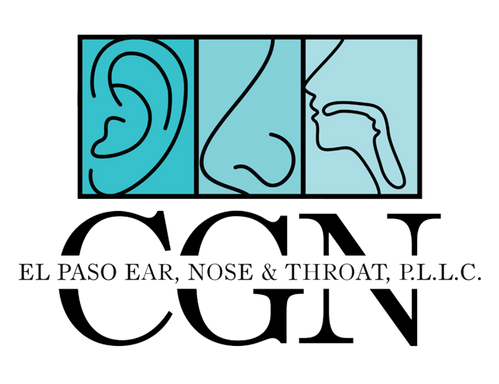Hearing Loss Treatment
250+
Completed Cases
Hearing Loss Treatment
Hearing loss is one of the most common health conditions in the United States, affecting people of all ages. The right treatment depends on factors such as the type and severity of hearing loss, underlying causes, and your lifestyle. At CGN El Paso Ear, Nose & Throat, we provide thorough evaluations and personalized solutions to help you hear clearly and enjoy life to the fullest.
Why Treat Hearing Loss?
Untreated hearing loss can have significant impacts at any age:
- Children: Hearing loss can affect language development, learning, and social engagement. Early diagnosis and treatment are essential for healthy development.
- Adults: Difficulty hearing can make everyday conversations challenging, leading some to withdraw from social activities, work, and hobbies.
- Older Adults: Untreated hearing loss has been linked to cognitive decline, depression, and a higher risk of falls.
The most common type of hearing loss is presbycusis, or age-related hearing loss, which occurs when the hair cells in the inner ear gradually stop functioning. Loud noise exposure over time is another major factor. Presbycusis is a type of sensorineural hearing loss, originating in the inner ear or auditory nerve.
Treatments for Hearing Loss
- Hearing Aids: Modern hearing aids are highly customizable and amplify sound to match your specific hearing loss. Your provider will guide you through a fitting process to ensure optimal results.
- Cochlear Implants: Recommended for patients who do not achieve sufficient benefit from hearing aids alone. Cochlear implants bypass damaged parts of the inner ear to directly stimulate the auditory nerve.
- Conductive Hearing Loss Treatments: Caused by blockages like earwax, fluid, or structural issues in the middle ear. Treatments may include medical management or surgical interventions, depending on the underlying cause.
Steps To Hearing Loss Treatment
1. Initial Evaluation
Your journey begins with a thorough evaluation by an ENT specialist. This includes discussing your medical history, lifestyle, and specific hearing concerns.
2. Hearing Testing
Comprehensive tests are performed to determine the type (sensorineural, conductive, or mixed) and severity of hearing loss. This may include:
- Pure-tone audiometry
- Speech recognition testing
- Tympanometry or other specialized diagnostics
3. Diagnosis & Consultation
Based on your test results, the ENT provider explains your type of hearing loss, potential causes, and treatment options. This is a personalized discussion tailored to your lifestyle and needs.
4. Treatment Planning
Depending on the cause and severity of hearing loss, treatment options may include:
- Medical management: For conductive hearing loss caused by earwax, infections, or fluid.
- Hearing aids: Customized to your hearing profile to improve daily communication.
- Cochlear implants: For severe sensorineural hearing loss not helped by hearing aids.
- Surgical intervention: Procedures like tympanoplasty or mastoidectomy for specific middle or inner ear issues.
5. Fitting & Adjustment
If hearing aids or cochlear implants are recommended, you will undergo a fitting process. The device is calibrated to your hearing needs, and follow-up visits ensure optimal performance.
6. Ongoing Care & Monitoring
Regular follow-ups help monitor your progress, adjust devices as needed, and manage any changes in hearing over time.
5+
Nursing Staff
10,000+
Completed Cases
2
Senior Doctors
Why Choose CGN El Paso ENT for Hearing Care?
Our team combines years of expertise with a compassionate approach, taking the time to evaluate your hearing needs, explain your options, and provide personalized solutions. Whether through hearing aids, cochlear implants, or medical treatment for conductive hearing loss, we guide you every step of the way.
Frequently Asked Questions
-
How do I know if I have hearing loss?
Signs include difficulty following conversations, turning up the volume on the TV, asking people to repeat themselves, or experiencing ringing in the ears (tinnitus). A professional hearing test can confirm the issue.
-
Can hearing loss be reversed?
Some types of hearing loss, like conductive loss caused by earwax or fluid, can often be treated medically or surgically. Sensorineural loss (from aging or inner ear damage) cannot be reversed but can be managed effectively with hearing aids or cochlear implants.
-
How long does it take to adjust to hearing aids or cochlear implants?
Most patients adjust within a few weeks, with gradual improvements in clarity as your brain adapts to amplified or newly processed sounds.


